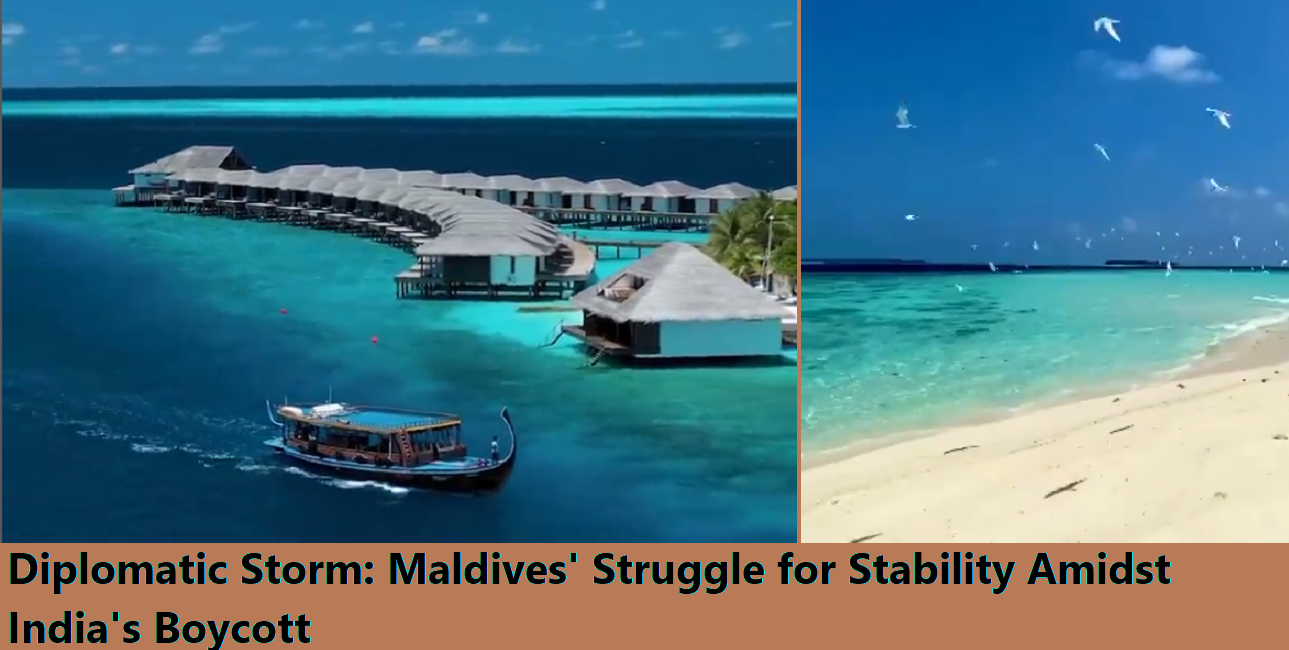Introduction:
In recent developments, Maldives has found itself in the midst of a diplomatic storm with India, triggering calls for a no-confidence motion against President Muizzu. The escalating tensions have not only strained political relations but also raised concerns about the economic repercussions, particularly in crucial sectors like tourism. This blog will delve into the multifaceted dimensions of the crisis, exploring the political landscape, economic impacts, and unexpected alliances shaping the narrative.
Political events and diplomatic tensions can indeed have an impact on tourism, as visitors may reconsider travel plans to destinations associated with such controversies. Tourists may choose to avoid destinations for various reasons, including concerns for their safety, political stability, or in response to calls for boycotts.
Political Turmoil in Maldives
The demand for a no-confidence motion gains momentum: As the dispute with India deepens, the opposition party, Maldives Democratic Party (MDP), led by Ali Azim, is spearheading the call for a no-confidence motion against President Muizzu. Azim emphasizes the need to maintain a robust foreign policy for the nation’s stability, raising questions about the current administration’s handling of international relations.
Economic Ripples of India’s Boycott
Concerns over economic repercussions:
Former Sports Minister Ahmed Mahloof expresses apprehensions about the adverse economic impact of India’s boycott on Maldives. With India being a significant economic partner, especially in the tourism industry, Mahloof highlights the potential challenges the nation may face in the wake of strained relations.
Maldives Tourism Industry’s Stance:
The Maldives Association of Tourism Industry (MATI) acknowledges India’s crucial role in the tourism sector and condemns derogatory statements made by ministers against India and PM Modi. The industry fears that any further deterioration in relations may severely affect tourism, a vital source of revenue for the Maldivian economy.
Political Figures and Public Sentiment
Opposing Views within Maldives:
Former Defense Minister Maria Ahmed Didi voices support for India, attributing the controversy to the failure of President Muizzu’s administration. Didi emphasizes the historical support India has provided in terms of defense and security, portraying the current situation as a call akin to “India 911.”
Public Sentiment and Social Media Trends:
The controversy surrounding derogatory remarks on social media triggers a widespread outcry in India, leading to the trending hashtag #BoycottMaldives. Celebrities and netizens express support for tourism in Lakshadweep, emphasizing the beauty of the Indian islands. The blog explores the role of social media in shaping public opinion and influencing diplomatic discourse.
Moreover, Maldives is an expensive travel destination for many reasons such as its remote location, limited space, high-end accommodation, limited local resources, environmental regulations, high-end activities and luxury taxes all contribute to the high cost of traveling to the Maldives.
Unlikely Alliances and Global Dynamics
Israel’s Response:
Amidst the diplomatic tensions, Israel announces the initiation of a sea-water desalination project in Lakshadweep. This unexpected move serves as a strategic response from India and Israel, signaling solidarity and resilience in the face of criticism.
Diplomatic Maneuvers and International Reactions
High-level Diplomatic Meetings:
The Indian High Commissioner visits the Maldivian Foreign Ministry to address the escalating situation. The blog details the diplomatic discussions and emphasizes the urgency of resolving the crisis to preserve bilateral relations.
Google Search Surge:
A media report highlights a surge in Google searches for Lakshadweep, attributing it to Prime Minister Modi’s recent visit. The blog explores the impact of diplomatic incidents on public interest and engagement, shedding light on the importance of soft power in international relations.
Conclusion:
As the Maldives-India dispute unfolds, it becomes clear that the ramifications extend beyond political tensions to encompass economic stability and global alliances. The blog concludes by underlining the significance of diplomatic resolution, emphasizing the need for nations to navigate challenges collaboratively in an interconnected world..
For more related news – Top News
